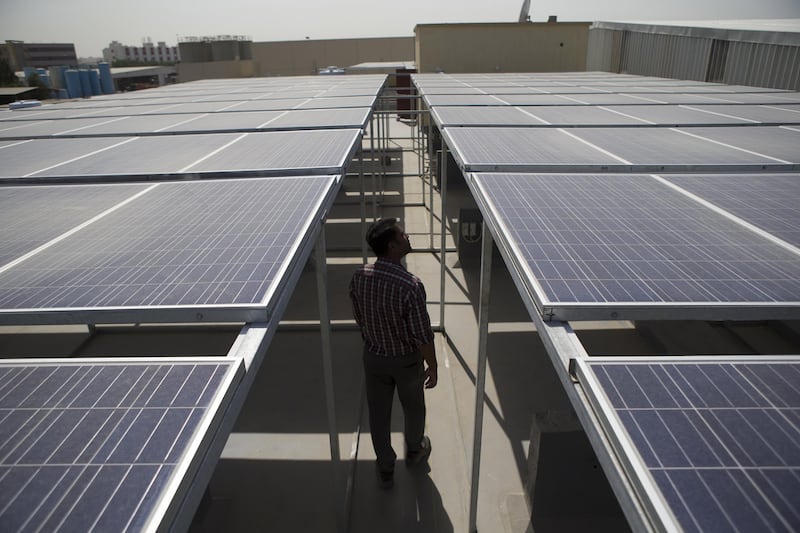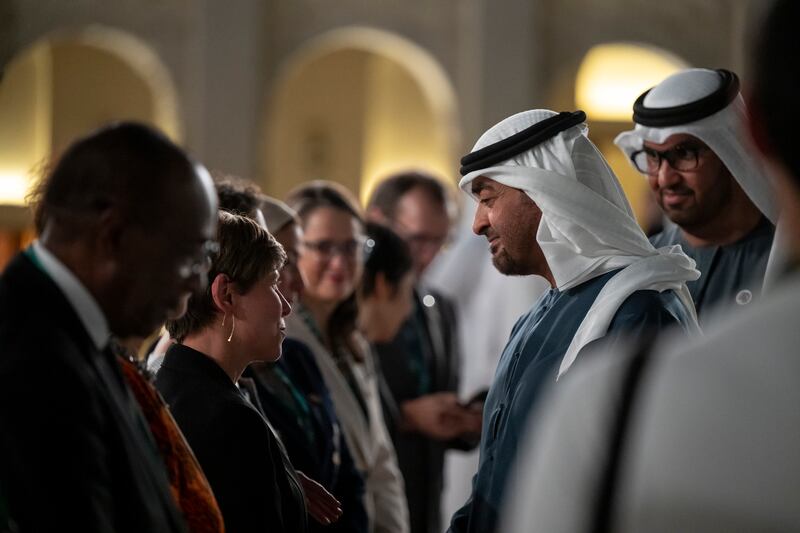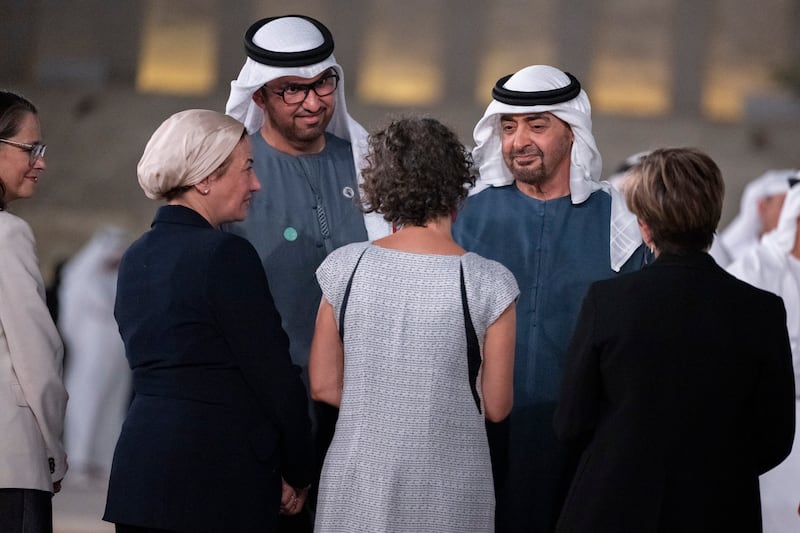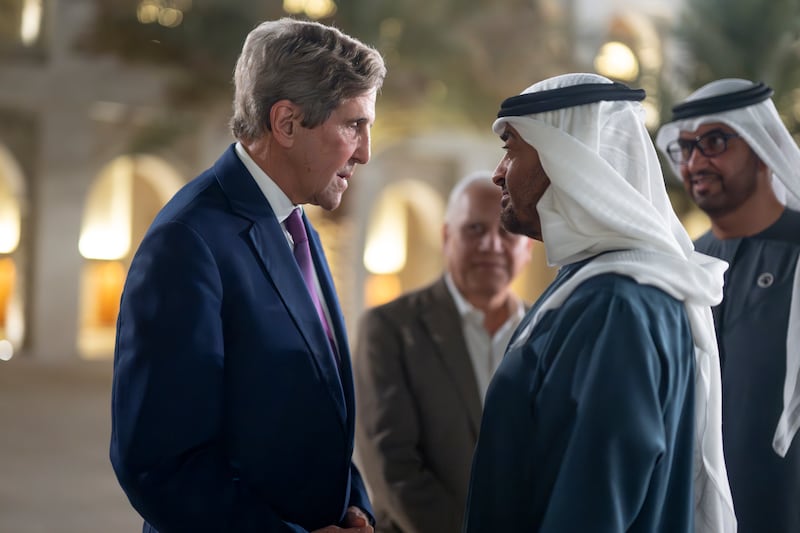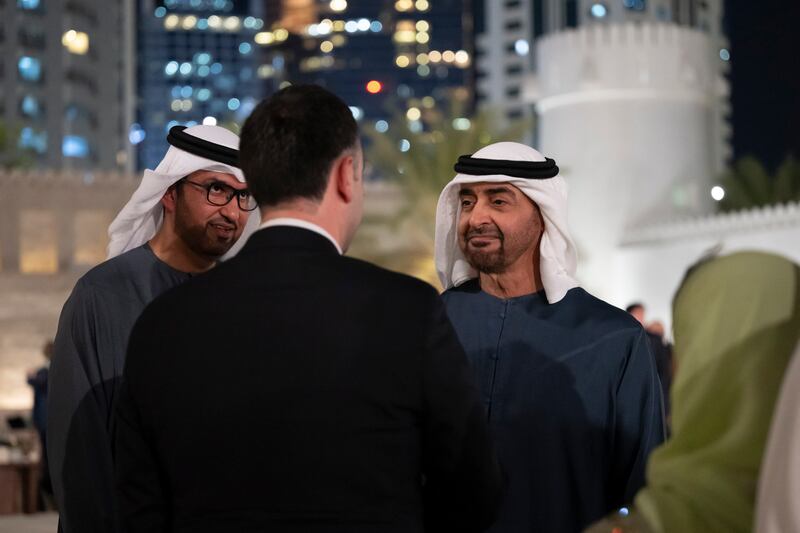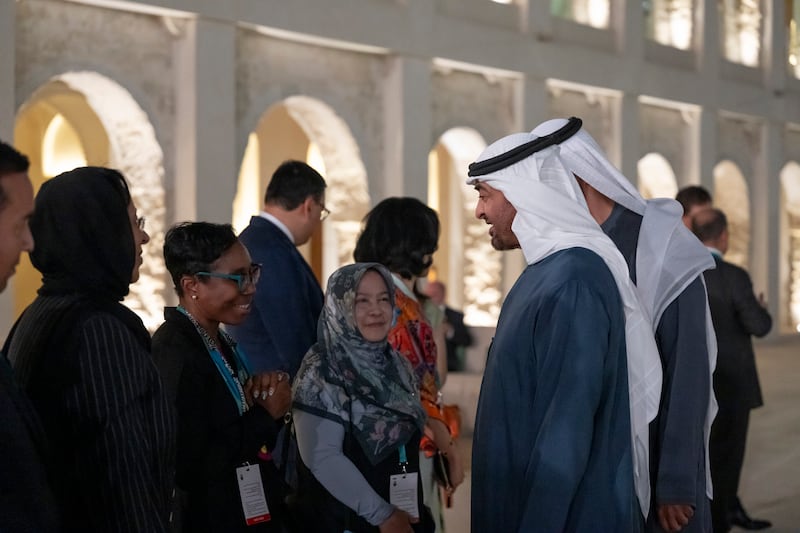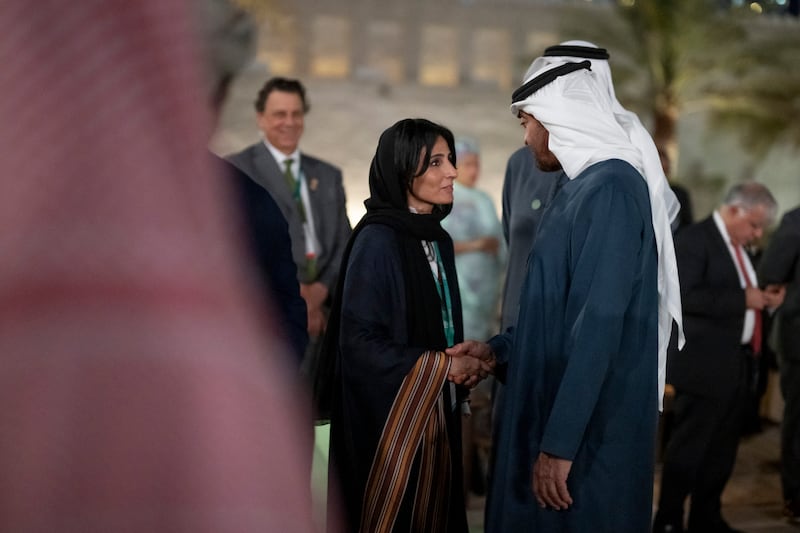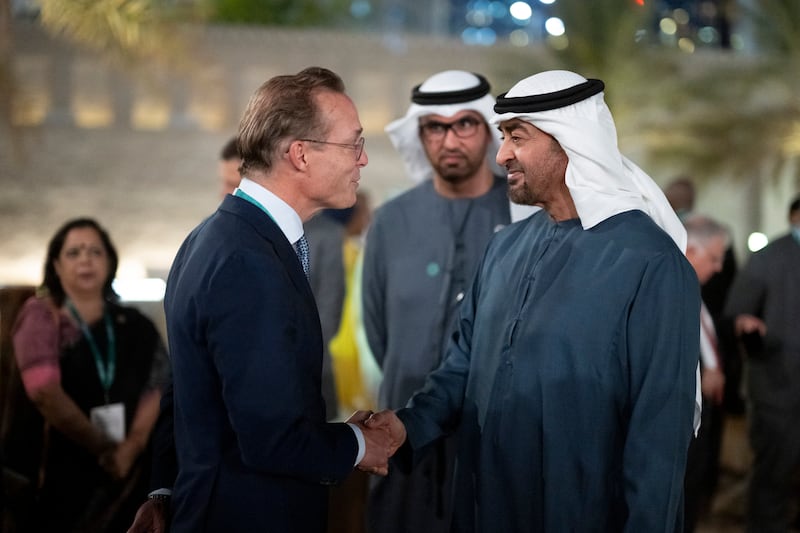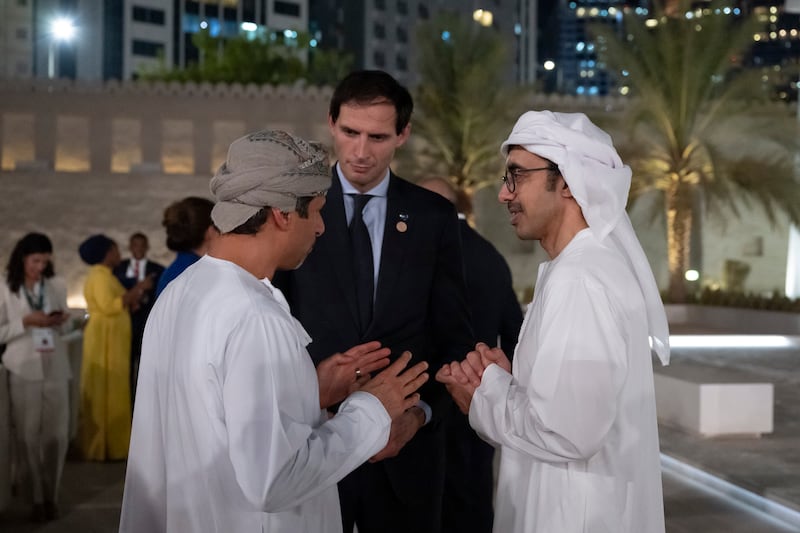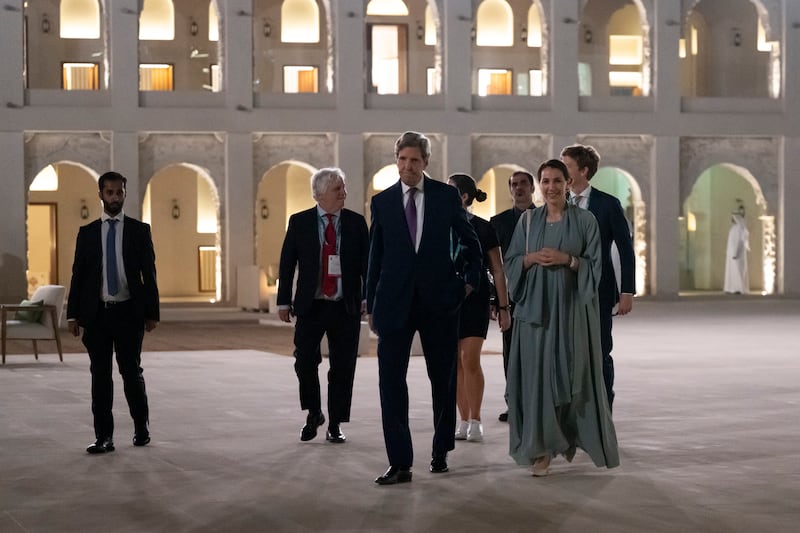Think tank REN21 has witnessed a move in response to the Cop28 presidency's call to triple renewable energy capacity and double energy efficiency by 2030, according to its executive director.
Global renewable power capacity will need to reach more than 11,000 gigawatts by the end of the decade, with solar and wind accounting for about 90 per cent of the growth, to meet the Paris Agreement goal of limiting the rise of global temperatures to below 2°C above pre-industrial levels, Irena, Cop28 presidency and the Global Renewables Alliance said in a report last month.
Peak fossil fuel demand is now in sight by the end of the decade, supported by clean energy policies and the rising adoption of electric cars, according to the International Energy Agency.
Supply was only “one side of the game” and major energy-consuming sectors needed to shift away from fossil fuels to renewable energy, Rana Adib told The National.
“We see there’s a mobilisation around the global renewable energy and energy efficiency target in a way we have never seen in former Cops,” Ms Adib said.
“There is really a historic momentum at Cop28. Building on this, I think we have seen a mobilisation from a multi-stakeholder community.”
REN21, a global network made up of representatives from scientific bodies, governments, and industries, is working with the transportation sector towards the goal of fossil fuel-free land transport, which is “less being talked about” in the lead-up to the UN climate conference, Ms Adib said.
While clean energy adoption has increased, it has mostly been concentrated in a few large economies such as the US, the EU and China.
“Those discussions and the political mobilisation have very much been driven in particular more by industrialised Western countries, and the reality is that such a bold support to renewables needs to be supported by all countries,” Ms Adib said.

Developing and emerging economies are confronted with the challenge of having to provide basic, modern energy services to billions of people who currently lack access, all while engaging in the global shift towards low-carbon energy systems.
Many poorer nations are unable to mobilise funds for large-scale renewable energy projects due to perceived investment risks.
Last week, Saudi Arabia’s Energy Minister said climate change solutions should not come at the expense of “less empowered people”, during an event in Riyadh.
“Climate change is crucial, important, but it should not be attended to by crushing the bones and the future of the less empowered people,” Prince Abdulaziz bin Salman said.
China alone, which is the world’s second-largest economy, is expected to account for 55 per cent of additional renewable capacity by 2024, according to the IEA.
India, the world’s fifth-largest economy and a major consumer of crude oil and coal, has also ramped up spending on clean energy projects in recent years.
However, both Asian countries have so far been reluctant to commit to climate pledges that call for the adoption of sustainable cooling and the elimination of coal use.
“We see globally an increasing polarisation whether [it is] north-south, east-west or fossil fuels and renewables,” Ms Adib said. “It's about geopolitics [and] It's partly about national politics.”
She said that countries should include addressing climate change and the energy transition in their constitutions, so that “we can remove this political noise from something that is fundamentally much more good.”
